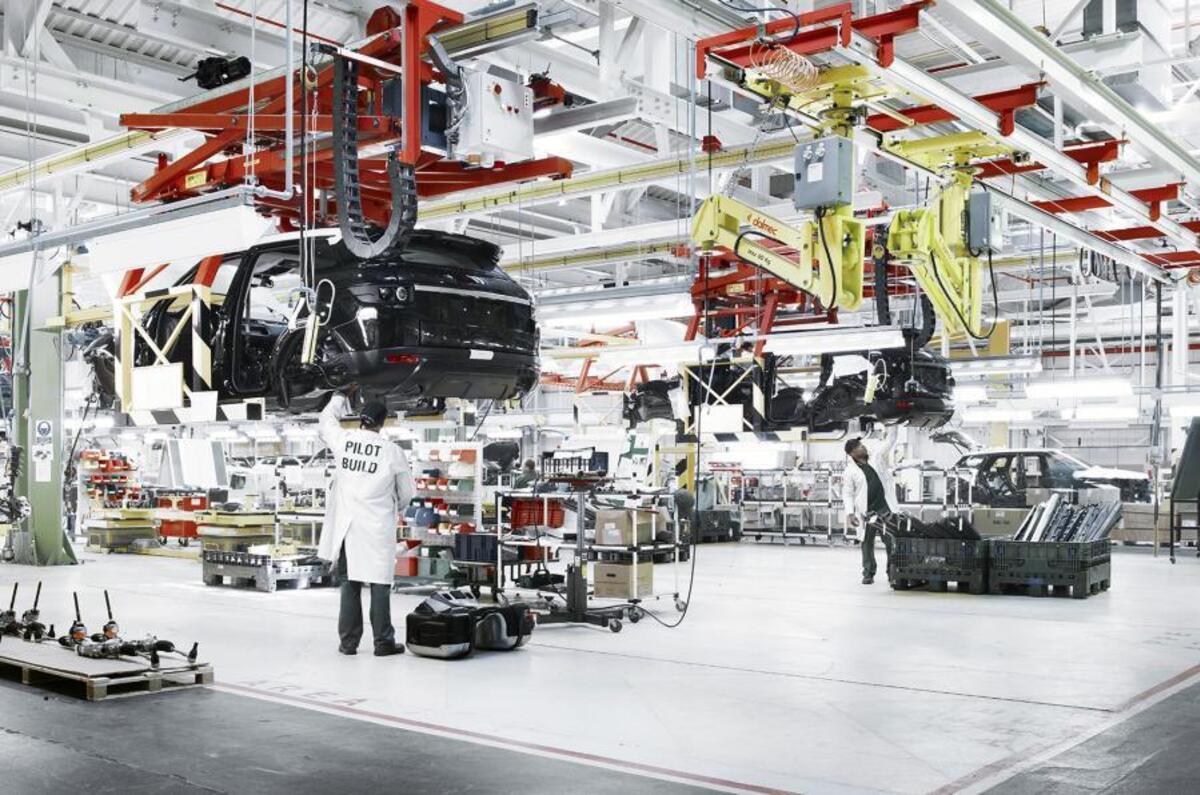Jaguar Land Rover (JLR) has pledged to keep its three main UK car plants open as part of its major overhaul and push towards electrification, although questions remain about the future direction of Castle Bromwich.
The British firm has major manufacturing facilities at Castle Bromwich, Halewood and Solihull, which produced a combined 243,908 cars last year. It also has an engine plant in Wolverhampton and its headquarters in Gaydon, among other UK facilities.
There had been doubts about whether the firm would continue to operate its three main UK factories, which particular questions over the future of Castle Bromwich, which is currently home to Jaguar’s struggling saloon models. But recently appointed JLR CEO Thierry Bolloré has insisted that there are no plans to shut any of its global sites.
Under the Reimagine plan outlined by Bolloré, the main Solihull facility will build cars on Land Rover’s new flexible multi-powertrain MLA platform and the new Jaguar-only EV architecture.
Halewood, currently used to produce the Land Rover Discovery Sport and Range Rover Evoque, will be home to models built on the "electric-biased" EMA architecture.
While JLR has pledged not to close Castle Bromwich, its future direction is unclear. The site is currently home to the Jaguar XE, Jaguar XF and Jaguar F-Type and was due to be used for the forthcoming electric XJ, but that has now been scrapped.
Bolloré hinted that, once production of Jaguar’s saloons ends when the brand goes all-electric, the site won't be used for making cars. He said the firm “will explore opportunities to refurbish the plant, which could benefit from the consolidation of businesses scattered across the Midlands”.
That could involve moving other JLR operations, such as the Classic and SVO arms, to the site or using it for another purpose.
JLR is planning heavy investment into electrification, connected services and data-centre technology, and it's also possible that the growth of ‘connected ecosystem’ services could offer new opportunities for the site. For example, Renault will turn its long-running Flins factory in France into a site dedicated to the “circular economy”, conducting operations such as battery recycling.
As well as shuffling its manufacturing operations, JLR will restructure its non-manufacturing infrastructure, with its executive team all moving into a single location at its Gaydon headquarters.
JLR also said that it has no plans to shut any of its global manufacturing facilities. It has plants in Slovakia (where the Land Rover Defender is produced), Brazil and China, while the Jaguar E-Pace and Jaguar I-Pace SUVs are produced under contract by Magna Steyr in Graz, Austria.
READ MORE
Jaguar to become all-electric brand from 2025
Jaguar Land Rover to test fuel cell powertrains within the year
Electric Jaguar XJ scrapped as part of brand reinvention plan








Join the debate
Add your comment
I would have thought they would look at bringing the Magna Graz production in house - either Halewood or even Slovakia to keep production within the EU? Would Whitley be moved to Gaydon? Could Castle Bromwich become a distribution centre for parts/aftermarket? Is there still any activity at Browns Lane, eg pilot build? What about the Wolverhampton i54 engine plant?
Sad to hear that there will be no new XJ but I guess the pragmatic decision has been made that Jaguar is now too small a volume maker to survive. You have though you wonder why with the car almost ready got production that JLR did not at least contract production of the XJ out to Magna Steyr. Looks as though if the Jaguar name survives it they will just be rebadged Range Rovers - hardly a tribute to their sporting pedigree.
The chickens are coming home to roost. First Honda at Swindon, now Jaguar at Castle Bromwich, next Vauxhall at Ellesmere Port and even what is the future for Nissan at Sunderland when all new battery production is on the continent. Never mind there is always salvation in all those new jobs in the fishing industry.